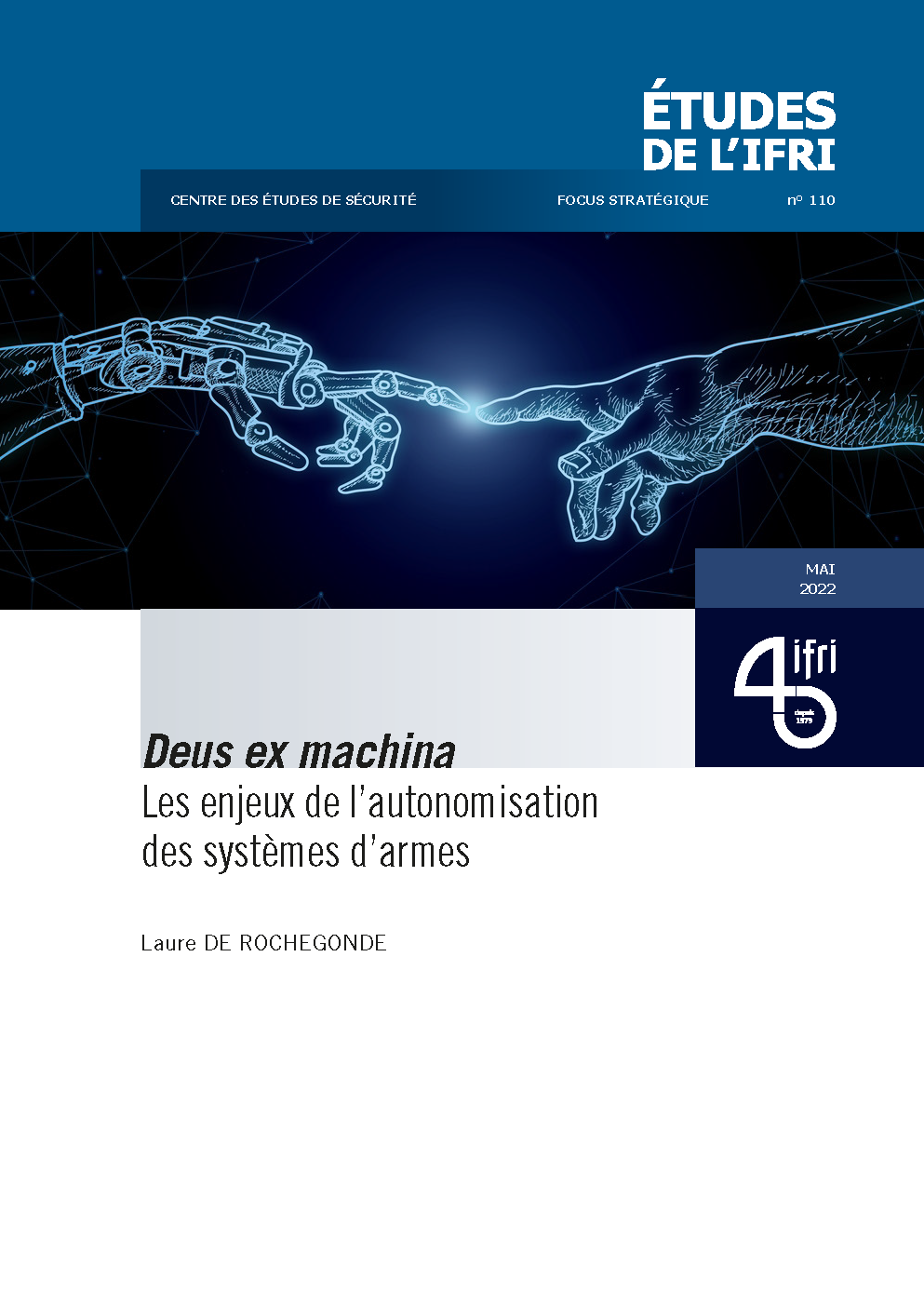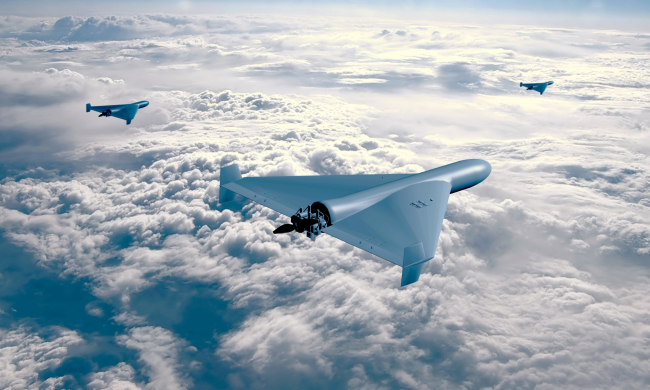Deus ex machina : les enjeux de l’autonomisation des systèmes d’armes

While the automatization of machines is part of an already long historical, conceptual, and technical trajectory, the exponential progress of artificial intelligence techniques, robotics and their military applications suggest the emergence of systems that integrate more autonomy. Indeed, despite campaigns calling for a moratorium on autonomous weapons, most military powers are developing programs focused on autonomy.

A full-fledged autonomous arms race is emerging, dominated by the United States and China – mainly due to a large, technologically advanced civilian digital industry capable of irrigating the development of military applications. Russia is closely following these two giants, thanks to numerous projects that it does not hesitate to experiment on theaters of operations. The review of their military investments in research and development, their public declarations and their presentations in this field demonstrates the significant attraction of these countries for the autonomization of weapon systems.
The appeal of weapon system autonomization is such that it is sometimes seen as a sort of "deus ex machina", capable of remedying both the problems associated with the reduction in the size of armies and the reduced tolerance for human losses on the battlefield. However, this study seeks to demonstrate that the autonomization of weapon systems cannot be a miraculous solution capable of alleviating all the problems faced by the French armed forces. If there is a "deus ex machina", it is only because of the contributions of technology to emerging weapons systems. However, this technological progress does not fall from the sky: it is therefore necessary to remain pragmatic in order to prepare for the paradigm shift brought about by the rise of autonomous systems.
While real game changers such as drone swarms or Lethal Autonomous Weapon Systems (LAWS) could soon arrive on the battlefield, it is essential to consider the capability and strategic implications that these technologies will have for the French armed forces. In this respect, the military need encourages the fastest appropriation possible of the technological building blocks allowing the autonomization of certain functions of weapon systems. However, the development of weapon systems integrating autonomy and the acculturation to these technologies represent a major challenge. Let's take the god out of the machine, therefore, in order to shed light on the military uses of systems integrating autonomy, as well as their implications for the French armed forces.
This content is available in French: "Deus ex machina : les enjeux de l’autonomisation des systèmes d’armes".

Available in:
Regions and themes
Share
Related centers and programs
Discover our other research centers and programsFind out more
Discover all our analyses"Iron Swords" A Military Analysis of Israel's War in Gaza
On October 7, 2023, Hamas' attack, dubbed “Al-Aqsa Flood,” caused a major shock and led Israel to launch the longest war in its history. Operation “Iron Swords” was notable for its unprecedented intensity, both in terms of the massive ground forces deployed and the firepower used.
Saudi Arabia’s Nuclear Temptations. Lessons Learned from Regional Instability
Saudi Arabia’s integration in the international arena and regional stability, notably through reducing its dependence on fossil energies, are crucial elements for the success of the Kingdom’s Vision 2030, the Crown Prince’s top priority. However, Mohammed bin Salman’s declarations in 2018 and 2021, indicating that “if Iran develops a nuclear bomb, we will follow suit as soon as possible”, combined with the recent strikes on key Iranian nuclear facilities, do not bode well for the future of the Kingdom, the region and the non-proliferation regime at large.
The Future of Air Superiority. Command of the Air in High Intensity Warfare
Air superiority, understood as control of the air, is a cornerstone of the Western art of warfare. It is a decisive condition, albeit not sufficient by itself, to achieve military victory, as it enables the concentration of air power toward the achievement of wider strategic objectives and protects other components from unbearable attrition levels. It is best achieved through the offensive use of air power in a joint effort to neutralize the enemy’s air power.
Europe Uncovered?
As Russia continues to threaten Europe, the Trump administration is making no secret of its desire to withdraw—at least partially—from the defense of the Old
Continent in order to focus on strategic competition with China. It is thus putting pressure on its European allies to increase their investment in the military sector. The NATO Summit in The Hague in June 2025 resulted in ambitious commitments by member states to increase their defense spending.













